Introduction & The Key Components of Healthcare App Development
Introduction on Development of Healthcare Apps
The Emergence of Development of Healthcare Apps
Healthcare App Development has seen explosive increase recently. Embracing digital transformation, the healthcare sector uses applications to link consumers to providers. Why has this increase happened? The epidemic hastened the demand for telemedicine, mental health support, fitness monitoring apps, and remote healthcare itself. The market boomed as individuals turned to their phones for medical advice and monitoring.
Why Development of Healthcare Apps Matters?
Healthcare Apps are now a need rather than only a luxury. These devices enable consumers to watch vital signs, plan visits, better manage their health, and even virtually see doctors. Apps simplify procedures, light administrative load, and improve patient involvement for medical professionals. Healthcare App Development guarantees that healthcare is available anytime, wherever in a society when convenience rules.
Knowing the Ecosystem of Healthcare Apps
From fitness trackers to sophisticated telemedicine systems, the wide and varied healthcare app ecosystem includes User-friendly interfaces and strong backend systems able of managing private health data coexist in a careful balance. Anyone entering Healthcare App Development must first grasp this ecosystem.
The Essential Ingredients of Development of Healthcare Apps
Fundamental Characteristics of a Medical Applying Tool
What distinguishes a medical app? Important elements are easy navigation, real-time alerts, safe login, and flawless interaction with other health systems. Along with tailored content and services including medicine reminders, exercise goals, or mental health advice, an app needs to be able to.
Healthcare App User Experience
Though in healthcare it is even more important, user experience (UX) is the core of every effective app. Bad UX can discourage consumers, so affecting their health results. Consequently, Healthcare App Development have to concentrate on easy navigation, simple design, and fast access to necessary functionality. Good design of an app keeps people interested and enhances their whole experience.
privacy and security issues
Sensitive health data at hand makes privacy and security non-negotiable. Apps have to be made sure they follow HIPAA and GDPR among other rules. Protection of user data depends critically on encryption, safe logins, and frequent security updates.
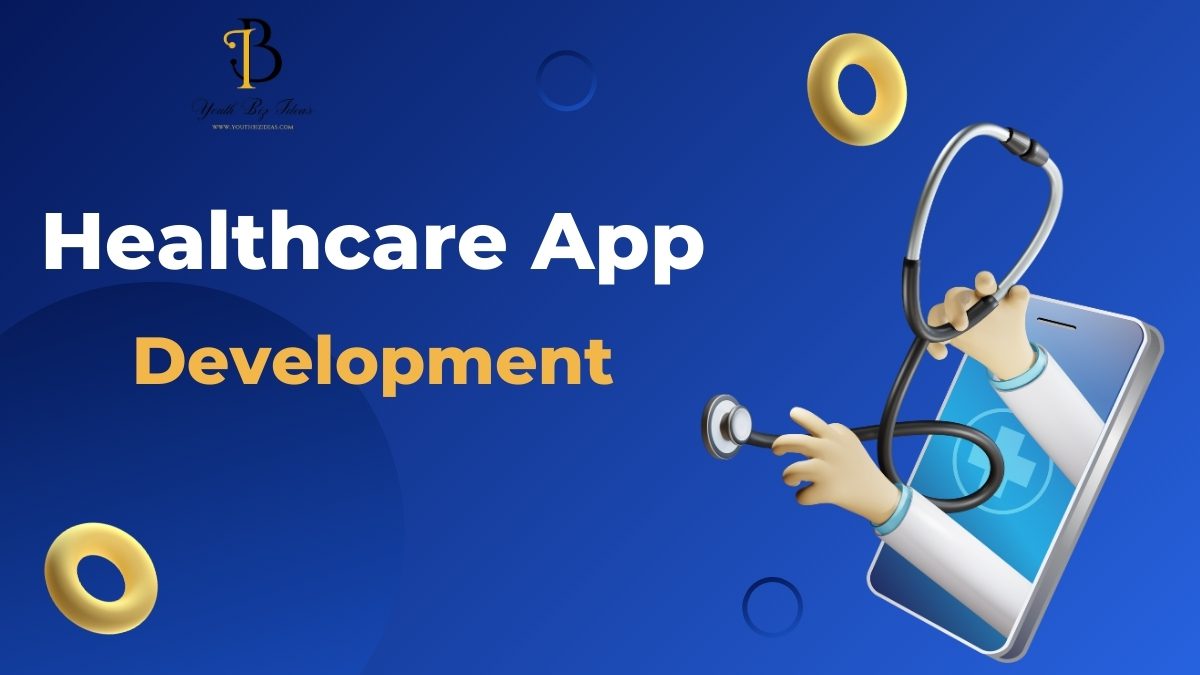

The Ultimate Guide to Healthcare App Development
Selecting Correct Developers of Healthcare Apps
- spotting important knowledge and abilities: Choosing the appropriate team for [Healthcare App Development] calls for rigorous evaluation of their competency. Seek out developers who are skilled in mobile app development, have a thorough awareness of healthcare laws, and are adept at combining challenging systems.
- Examining Case Studies and Portfolio: One may learn a lot about a developer’s aptitudes from their portfolio. Examining past projects and case studies will help you to evaluate their healthcare industry experience. Did they negotiate obstacles? What creative ideas they brought to light?
- Value of Industry Experience: In medicine, experience counts. Healthcare experienced developers are more suited to grasp the subtleties of the sector, from user needs to compliance. More dependable and efficient apps follow from this experience.
Forms of Medical Apps
- Applications for Telemedicine: Remote consultations made possible by telemedicine apps have transformed patient treatment. By use of video calls, chat, and instant messaging, these apps link patients with healthcare providers. They also let medications and medical records to be shared.
- Wellness and Exercise Apps: Apps for wellness and fitness let consumers monitor their food, exercise, and general state of health. From meal planners to step counters, these applications support better living and offer individualized insights depending on user information.
- Apps for Mental Health: Those coping with anxiety, depression, and other mental health disorders find help here. Among the features might be access to qualified therapists, guided meditations, and mood monitoring.
- Chronic Disease Management Apps: These apps give tools for people with chronic diseases as diabetes or hypertension to track their health, control their prescriptions, and interact with their healthcare team. For individuals with long-term medical conditions, they are rather important in raising their quality of living.
Challenges in Healthcare App Development
- Regulatory Compliance: One of the biggest challenges in developing healthcare applications is navigating the complex regulatory landscape. Applications are required to adhere to rigorous standards, including the regulations set forth by the FDA regarding medical devices, and must guarantee compliance with all legal obligations.
- Data Security and HIPAA: Safeguarding patient information is essential. It is essential for developers to establish strong security protocols to safeguard against data breaches and maintain adherence to HIPAA regulations. This encompasses encryption, secure data storage, and frequent security audits.
- Integration with Existing Systems: Healthcare systems frequently exhibit complexity and fragmentation. Integrating a new application with current electronic health records (EHR) systems, patient management software, and additional tools can present challenges, yet it is crucial for the application’s success.
Healthcare App Development Services
- Custom App Development Services: Tailored development services provide unique solutions designed to address the distinct requirements of healthcare providers. These applications are developed from the foundation, incorporating features and functionalities tailored to meet specific challenges.
- Off-the-Shelf Solutions: For individuals with limited budgets or time constraints, ready-made solutions can serve as a practical choice. These pre-built applications allow for some customization, yet they might not provide the same degree of adaptability as tailored solutions.
- Ongoing Maintenance and Support: Healthcare applications need ongoing updates and support to ensure they meet regulatory standards and address user requirements. Maintenance services guarantee that the application stays operational, safe, and current with the newest technological developments.
How to Create a Healthcare App
- Ideation and Planning: Developing a healthcare application starts with a solid concept. Begin by pinpointing a particular issue that your application aims to address. Perform thorough market analysis to gain insights into your ideal customers and the current competitive landscape.
- Design and Prototyping: After clarifying the concept, proceed to the design phase. Develop wireframes and prototypes to illustrate the app’s structure and user navigation. This step is essential for pinpointing identifying potential challenges and implementing essential modifications prior to the start of development.
- Development and Testing: Now that the design is complete, we can move forward with development. Adhering to optimal practices in coding and software development is crucial, guaranteeing that the application remains both operational and secure. Comprehensive testing must be performed to uncover and resolve any bugs or issues.
- Launch and Post-Launch Support: The app has successfully passed testing and is now prepared for launch. Nonetheless, the task continues beyond that point. Post-launch support is essential for responding to user feedback, resolving any post-launch issues, and keeping the app current and relevant.
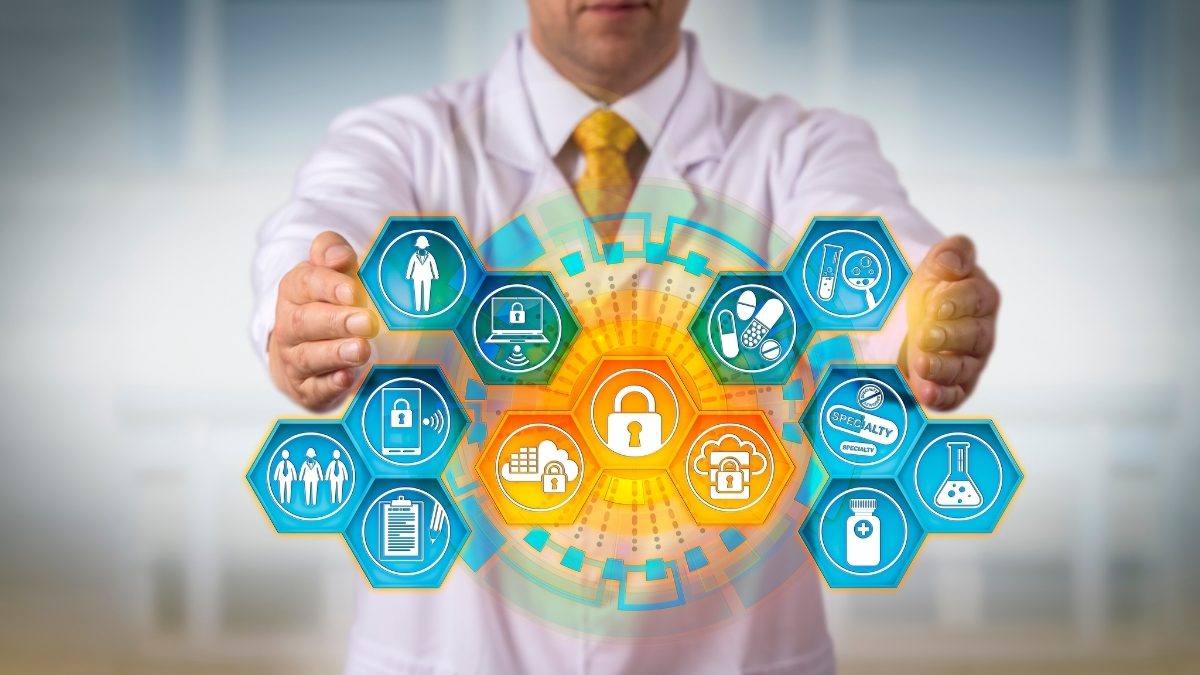

Top Healthcare & Future App Development Companies
Top Healthcare App Development Companies
- Criteria for Selecting the Best Company: Selecting the appropriate development firm is crucial for the success of your app. Important factors to consider are the organization’s background in the healthcare sector, their project portfolio, feedback from clients, and their capacity to complete projects punctually and within financial constraints.
- Leading Companies in the Industry: A number of companies excel in the healthcare app development sector. These consist of [Company A], recognized for its cutting-edge telemedicine solutions, and [Company B], which focuses on fitness and wellness applications. Each presents distinct advantages and offerings.
- Comparing Services and Pricing: Choosing a development company requires careful consideration of their offerings and costs. Some companies deliver high-end tailored solutions, while others present budget-friendly ready-made alternatives. Align your requirements with your financial plan to ensure optimal decision-making.
The Future of Healthcare App Development
- Emerging Trends: The future of healthcare app development looks promising, with numerous emerging trends poised to influence the industry. The integration of AI and machine learning provides enhanced personalization in care, while blockchain technology ensures secure management of data.
- The Role of AI and Machine Learning: Artificial intelligence and machine learning are revolutionizing healthcare applications through the implementation of predictive analytics, tailored recommendations, and streamlined automation. These technologies enhance patient outcomes and optimize healthcare delivery.
- The Impact of Wearable Technology: Smartwatches and fitness trackers are progressively merging with healthcare applications. This trend enables ongoing health tracking and offers users immediate insights into their well-being.
The User-Centered Design & Regulatory Compliance in Healthcare Apps
The Significance of User-Focused Design in Healthcare Applications
- Grasping User Requirements: To create a successful healthcare app, it is essential to begin with a comprehensive grasp of user requirements. Carrying out user research and collecting feedback in the design phase guarantees that the app fulfills its intended goals and tackles user challenges effectively.
- Creating Accessible Designs: Accessibility plays a vital role in the design of healthcare applications. Applications must be accessible to all users, including individuals with disabilities. This guarantees that the app works seamlessly with screen readers, provides various input options, and features clear, legible fonts.
- Guaranteeing a Smooth User Journey: An effortless user experience is essential for maintaining user engagement with your application. This encompasses user-friendly navigation, quick loading speeds, and straightforward guidance. Users must locate what they require swiftly and effortlessly, avoiding any annoyance.
Adhering to Regulations in Healthcare App Development
- Understanding FDA Regulations: The FDA oversees specific healthcare applications, especially those that operate as medical devices. It is essential for developers to adhere to these guidelines to prevent legal complications and prioritize user safety.
- Grasping HIPAA and GDPR: In the U.S., HIPAA and in Europe, GDPR are essential regulations that dictate the management of healthcare data. Adhering to these regulations is essential for any healthcare application that handles patient information. This involves the execution of data encryption, the establishment of user consent protocols, and the conduct of regular compliance audits.
- Safeguarding Data Privacy and Security: In addition to adhering to regulations, ensuring data privacy and security is crucial for fostering user confidence. To safeguard sensitive health information, applications must implement advanced security protocols, such as encryption, secure data storage, and consistent security updates.
Monetizing & Case Studies Healthcare Apps
Generating Revenue from Healthcare Applications
- Models Based on Subscriptions: A prevalent method for generating revenue from a healthcare app is by utilizing subscription-based models. Subscribers can choose to pay a monthly or annual fee to unlock premium features, including advanced health tracking, tailored advice, or unlimited consultations with healthcare professionals.
- Purchases Within the App: In-app purchases enable users to acquire extra features or content directly within the application. This model is frequently utilized in fitness and wellness applications, allowing users to buy tailored workout plans, nutrition guides, or premium content.
- Promotions and Collaborations: Another source of income is through advertising and collaborations. Healthcare applications have the potential to collaborate with appropriate brands to provide focused advertisements or sponsored material. It is crucial to guarantee that advertisements do not interfere with the user experience or undermine the app’s trustworthiness.
Case Analyses: Successful Healthcare Application Development Initiatives
- Examination of Successful Applications
Analyzing successful healthcare applications provides valuable insights into their success factors. For instance, [App X] transformed chronic disease management by providing an intuitive UI and effective data tracking functionalities. Furthermore, [App Y] has emerged as a premier supplier of mental health support by delivering round-the-clock access to certified therapists.
- Insights Gained from Failures
The most efficient healthcare applications are not necessarily the most prosperous, yet there is substantial knowledge to be gained from those that fail. Besides neglecting genuine customer requirements, common shortcomings encompass inadequate user experience, insufficient regulatory compliance, and failure to meet actual user needs. To prevent repeating the errors of these developers, it is essential for them to analyze these failures.
- Advancements in Healthcare Application Development
The healthcare application industry is intensely competitive, necessitating innovation to maintain a competitive edge. Augmented reality (AR) is a contemporary breakthrough that facilitates improved patient education via AI for predictive analytics and blockchain for safe data storage and medical record management.
The Significance of Healthcare Application Development in Telehealth
- Integration of Telehealth: In the digital era, telehealth is becoming integral to healthcare delivery, with applications serving a crucial function in this transformation. Applications that integrate telehealth functionalities, including video consultations and remote monitoring, improve healthcare accessibility, especially for individuals residing in distant areas.
- Improving Patient-Provider Communication: The efficacy of communication between patients and clinicians significantly impacts healthcare outcomes. Telehealth applications enhance communication by enabling immediate messaging, video conferencing, and seamless sharing of test results and medical records.
- The Prospects of Telehealth: As applications advance the future of telehealth, this period seems promising for the sector. Advancing technology will provide increasingly complex telehealth systems that deliver seamless, integrated care across various platforms and devices.
Conclusion
Healthcare app development is a rapidly evolving field driven by the need for accessible, efficient, and secure healthcare solutions.
Successful apps prioritize user experience, adhere to regulatory standards, and leverage technological advancements. The future holds immense potential for healthcare apps, particularly as AI, machine learning, and wearable technology continue to evolve.
These innovations will lead to more personalized, data-driven healthcare that improves patient outcomes and reduces costs. In conclusion, healthcare app development is not just about creating an app—it’s about transforming healthcare.
By focusing on user needs, regulatory compliance, and technological innovation, developers can create solutions that make a difference in people’s lives.
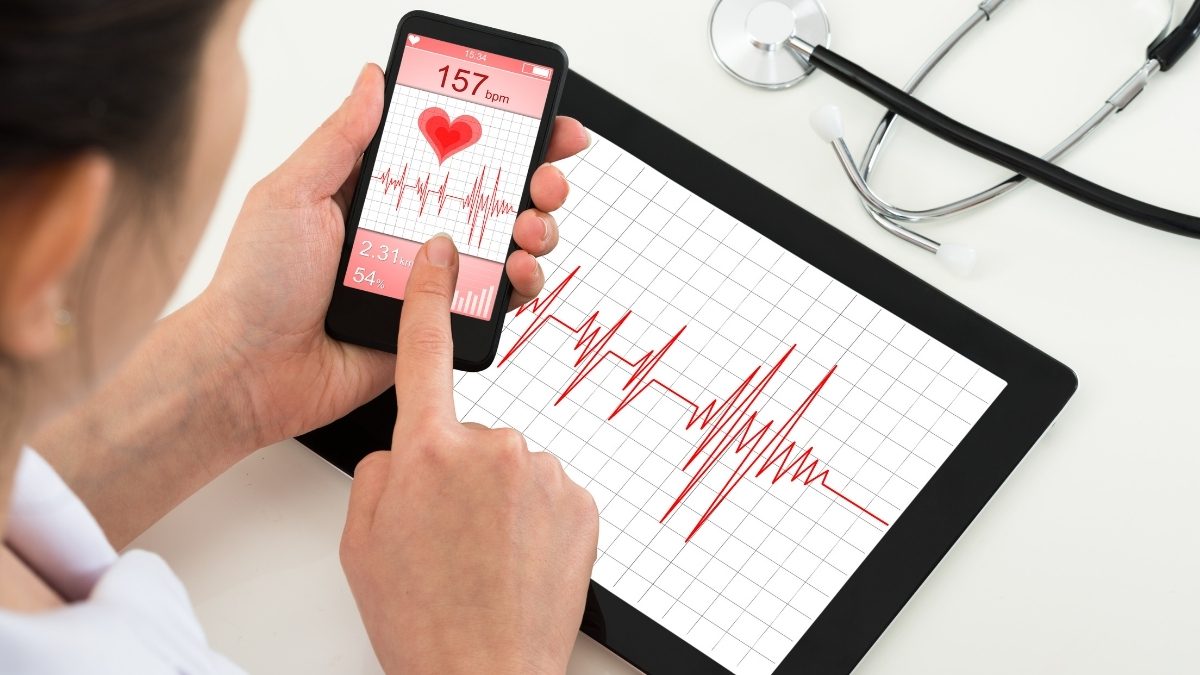

FAQs
1. How to make an app for healthcare?
To create a healthcare app, start with thorough market research to identify user needs. Follow this with creativity, planning, and designing a user-friendly interface. Develop the app with a focus on security and compliance with healthcare regulations. Finally, test the app rigorously before launching and ensure continuous updates and support.
2. What are the disadvantages of healthcare apps?
While healthcare apps offer numerous benefits, they also come with challenges, such as data security risks, the potential for user error, and the need for strict regulatory compliance. Additionally, not all users may be comfortable using digital tools, leading to a digital divide in healthcare access.
3. How do you monetize health apps?
Healthcare apps can be monetized through various methods, including subscription-based models, in-app purchases, and advertising. Partnerships with healthcare providers and brands can also offer revenue opportunities. It is essential to choose a monetization strategy that aligns with the app’s goals and user base.
4. What are digital health apps?
Digital health apps are mobile applications designed to assist users in managing their health and wellness. They range from fitness trackers and diet planners to apps that monitor chronic conditions or facilitate telemedicine. These apps play a crucial role in modern healthcare by offering convenient, personalized, real-time health management tools.
5. What is the role of AI in healthcare app development?
AI plays a significant role in healthcare app development by enabling personalized care, predictive analytics, and automated processes. It can analyze vast amounts of data to offer tailored health recommendations, predict potential health issues, and streamline administrative tasks, ultimately improving patient outcomes.
6. Do healthcare apps require FDA approval?
Some healthcare apps require FDA approval, primarily if they function as medical devices or provide diagnostic, treatment, or monitoring capabilities. Apps that do not fall into these categories may not need FDA approval but must still comply with healthcare regulations like HIPAA. Additionally, healthcare apps must be secure, reliable, and compliant with privacy regulations. They must also be regularly tested for accuracy and security. Finally, healthcare apps should be subject to user testing and feedback.
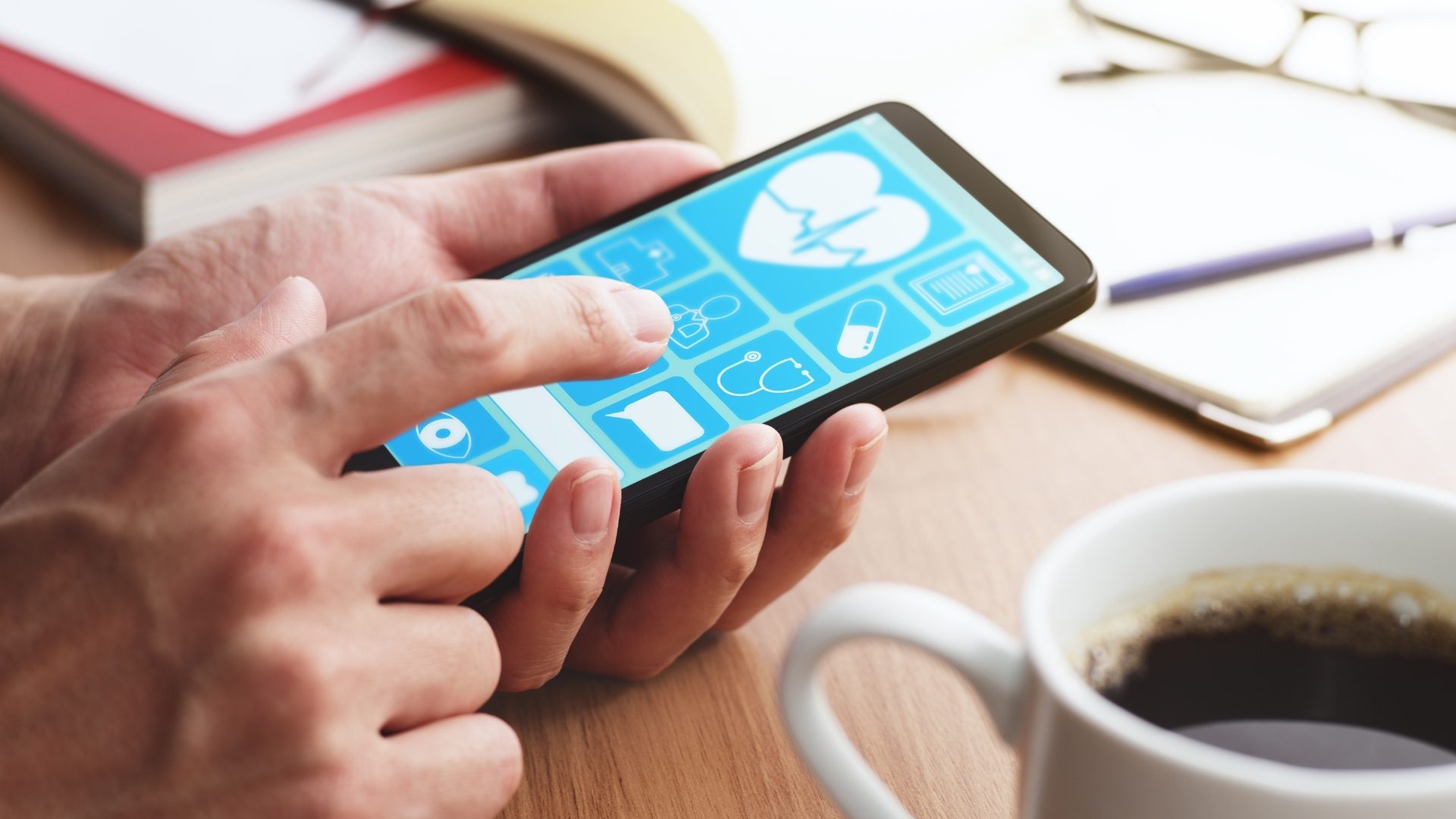
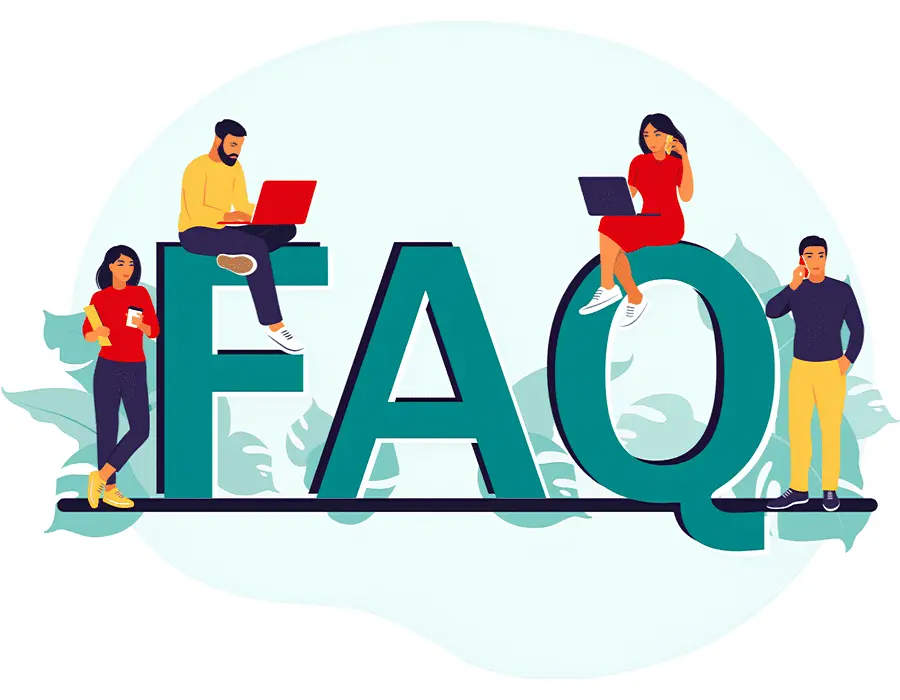








One Response
lq0i3p